Key Highlights from the Luncheon Briefing on Bridging Gaps in Treatment Completion and Comprehensive Breast Cancer Management
On June 4, 2025, the Swiss Chamber of Commerce of the Philippines (SwissCham Philippines) and the Embassy of Switzerland, in partnership with Roche (Philippines), Inc., hosted a luncheon meeting at Makati Diamond Residences. The meeting focused on closing gaps in breast cancer treatment and management to bolster the global breast cancer strategy in the Philippines. The meeting successfully facilitated proactive discussions among health leaders, patient advocates, and policymakers. These discussions were aligned with the objectives of evaluating patient challenges, strengthening stakeholder collaboration, exploring innovative solutions, and reinforcing a shared commitment to actions consistent with the World Health Organization's (WHO) Global Breast Cancer Initiative (GBCI) targets.
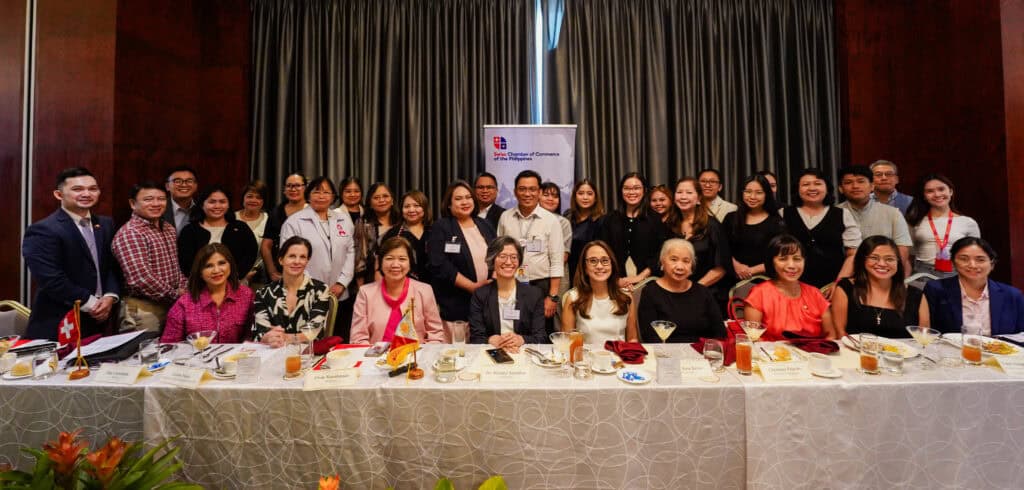
The high-level meeting was opened by Céline Fürst, Deputy Head of Mission of the Embassy of Switzerland in the Philippines, through her address on he significance of recognizing the urgent need for concerted efforts to address gaps in patient care, treatment adherence for innovative medicines, and financial access. The event host, Journalist Jing Castañeda, introduced Dr. Melanie Santillan, Senior Manager for Benefits Development and Research Department of PhilHealth, where Dr. Santillan presented PhilHealth’s on-going initiatives, benefit packages, policy directions, and its critical role ensuring access to cancer treatments across the country.
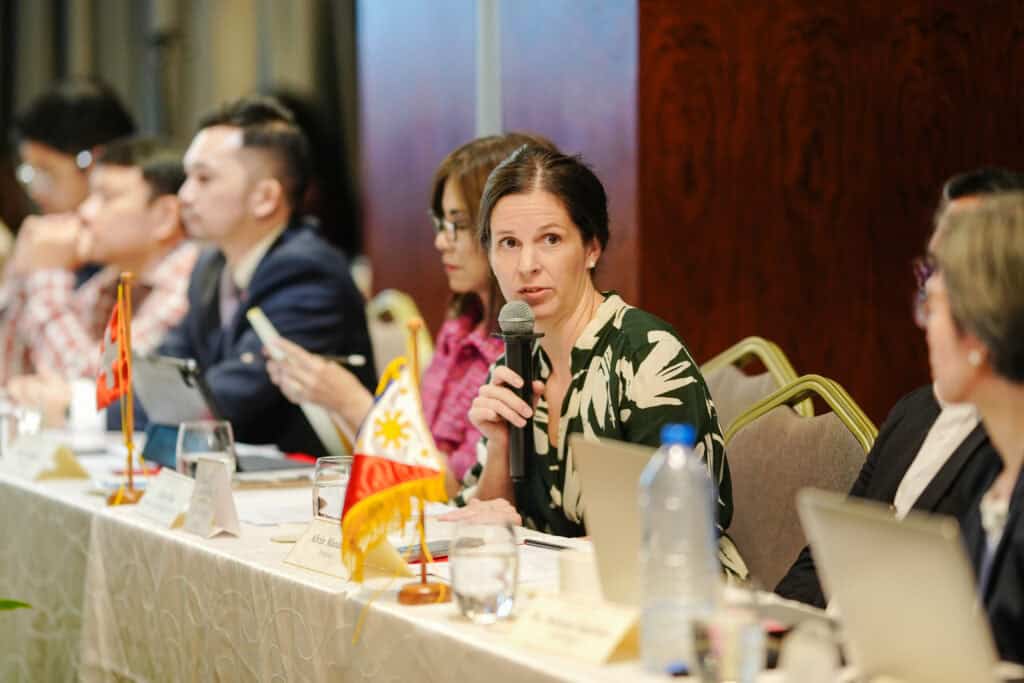
Dr. Santillan underscored that future enhancements to the package will focus on improving treatment completion rates, expanding accredited facilities, and integrating more cancer medicines into the National Formulary, as aligned with the Universal Health Care (UHC) law. Towards data-driven and patient-centered care, Dr. Santillan shared the current limitations in comprehensive patient data analytics, reinforcing the need for enhanced technical capacity to effectively monitor and assess treatment outcomes. She also highlighted the importance of public awareness campaigns to inform the public about the available PhilHealth programs.
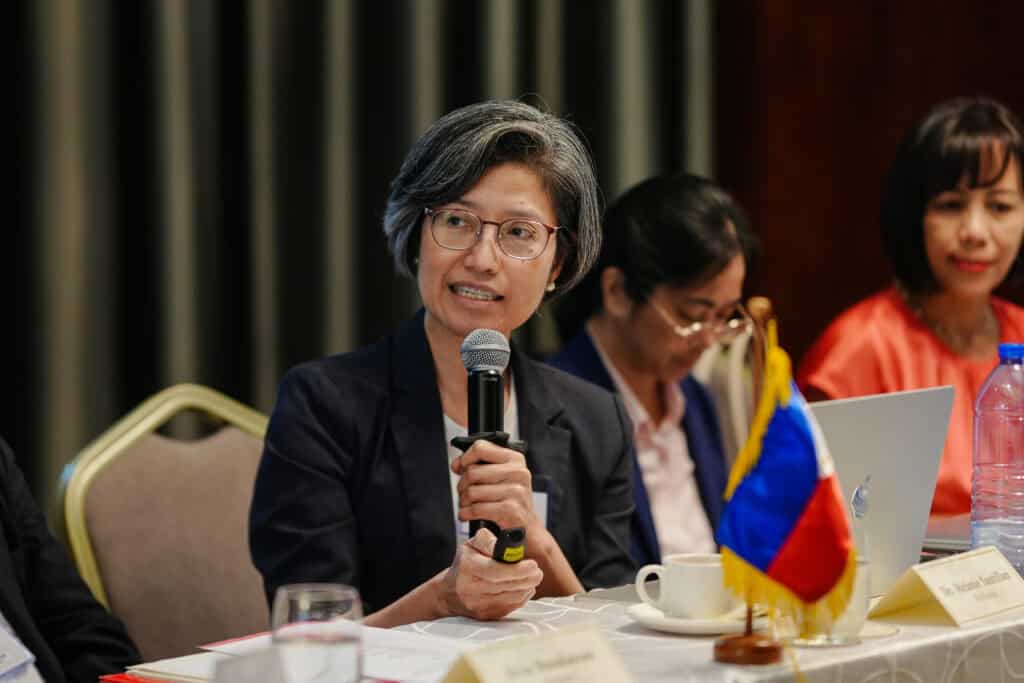
“Breast cancer
is not a death sentence”
Building from the momentum, a panel discussion moderated by Alvin Manalansan, Senior Adviser for Health and Education Initiatives Stratbase, echoed a powerful message of hope and resilience that "Breast cancer is not a death sentence."
To begin the discussion, Dr. Eunyoung Ko, Deputy Representative to the Philippines of the WHO, delivered a video presentation emphasizing WHO's commitment and outlining breast cancer as a critical global and Philippine public health challenge, as detailed in the WHO Global Breast Cancer Initiative (GBCI) rationale, which seeks to lower mortality rates through early diagnosis, prompt evaluation, and complete treatment.
The WHO offers support through technical collaboration and system-focused guidance to improve treatment pathways and integrate services and promotes cross-country learning and collaboration to share scalable, context-sensitive best practices.
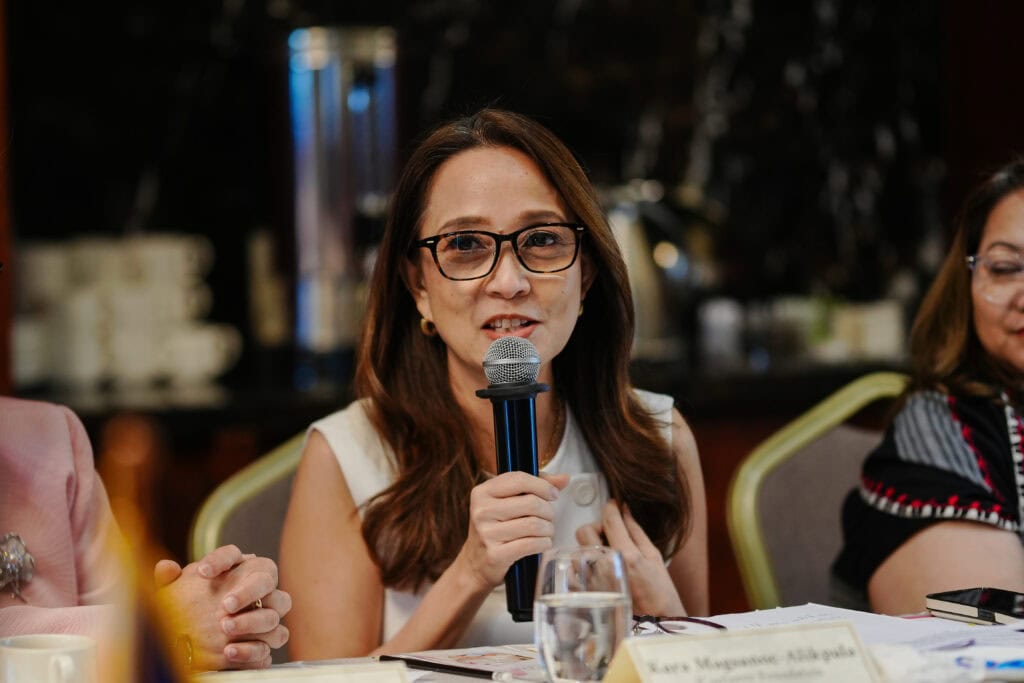
Panel speaker Kara Magsanoc-Alikpala, founding President of ICanServe Foundation, emphasized that breast cancer should be seen as a curable and manageable condition which, requires investment in treatment as a human rights imperative. She advocated for institutionalizing patient navigation programs and pushing for policy mechanisms to support continuous care. She also highlighted the difficulty of accessing medicines not included in the Philippine National Formulary (PNF), which guides government procurement and PhilHealth reimbursement and the need to include newer, innovative medicines.
Panel speaker Dr. Solidad Balete, Medical Oncologist at José R. Reyes Memorial Medical Center, highlighted the need to widen access to innovative standards of care through the PNF and better integration of social health funding. Dr. Balete accentuated the urgency of revisiting the UHC law to streamline the cancer care pathway, ensuring that support is not only limited to public hospitals, but also extended to private medical institutions.
Congressman Jude Acidre of the House of Representatives of the Philippines supported this by pushing for the inclusion of private hospitals under the Medical Assistance for Indigents Program. Panel speaker Dr. Diana Edralin, General Manager at Roche Philippines and President of Pharmaceutical and Healthcare Association of the Philippines (PHAP), stressed the importance of multi-stakeholder collaboration in making innovative treatments more accessible, localizing cancer programs or initiatives and building the capacities of frontline health workers.
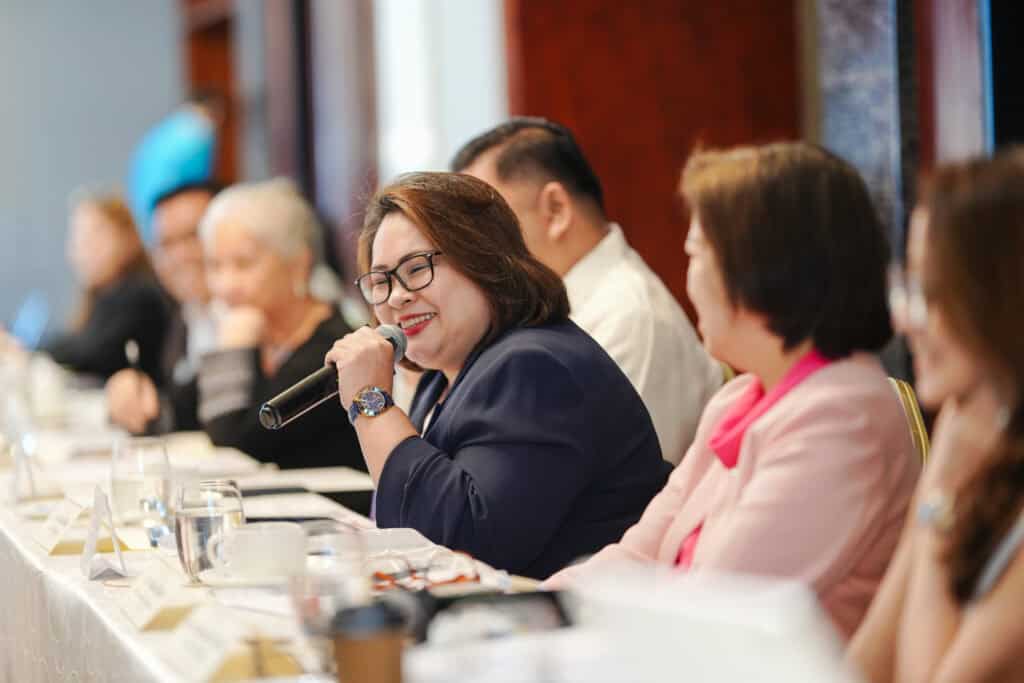
For the stakeholders’ commitment to action, representatives affirmed their unified pledge to transform breast cancer care into a system that is accessible, responsive, and patient-centered. Dr. Balete announced the launch of the Breast Cancer Early Detection initiative, aligned with the Department of Health (DOH) mandate, along with a patient tracker to monitor treatment schedules and sustain medication access. Dr. Edralin called for the continuous involvement of all contributors to breast cancer efforts, stressing the need for global-standard support that extends from diagnosis to reintegration into society.
Ms. Magsanoc-Alikpala pledged to continue patient-centered programs through forums and localization, urging stronger public-private partnerships. Dr. Santillan emphasized adherence to process and data-sharing for standardization. Congressman Acidre, through the Pharmaceutical Innovation Bill, outlined key priorities: early detection through partnerships, expanded treatment continuity, institutionalized patient navigation through the Carers Bill, completion of cancer centers, and investment in research. Honorable Acidre noted that patient care is a shared responsibility.
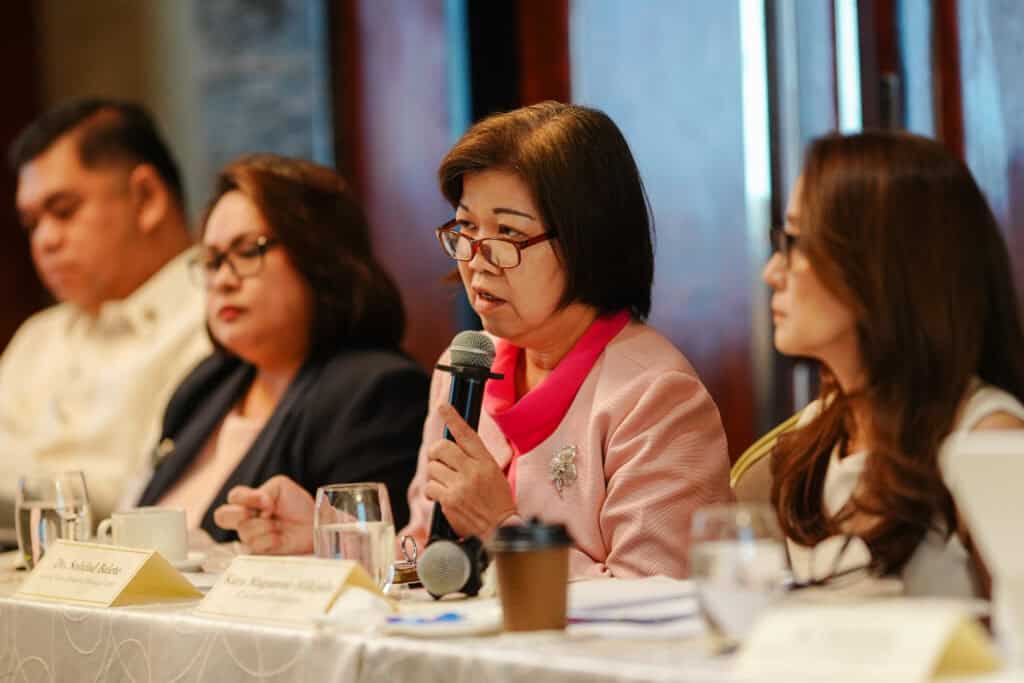
During the open forum, key stakeholders suggested strategies aimed at strengthening cancer care at both national and local levels. Dr. Corazon Ngelangel of the Philippine Cancer Society emphasized the National Integrated Cancer Control Act as a whole-network framework, supported by Cong. Acidre’s call to translate research into practice. Ms. Jenny Tupaz of the Philippine Oncology Nurses Association pointed out the importance of public health campaigns for early detection, noting barriers such as cost and limited awareness.
Dr. Art Libao of Maxicare advocated for care coordinators to enhance data sharing and holistic support, including mental health and aesthetic care. Artemio Bautista from the Department of Social Welfare and Development DSWD called for a reassessment of the Crisis Intervention Program, recommending increased funding and clearer regulations, especially for in-field personnel. Daisy Cembrano from PHAP echoed the need for expanding access points, information dissemination, and strict cancer fund monitoring.
From the Local Government Unit (LGU) front, Dr. Karen See, Cancer Program Coordinator of Quezon City, highlighted Quezon City’s screening programs under its Cancer Care Network. Similarly, Dr. Evelyn Lacsina, Executive Assistant for Health of Taguig City, shared the success of their “Ating Dibdibin” Program”, and offered to replicate and share their LGU's model to support other localities in building cancer-responsive communities.
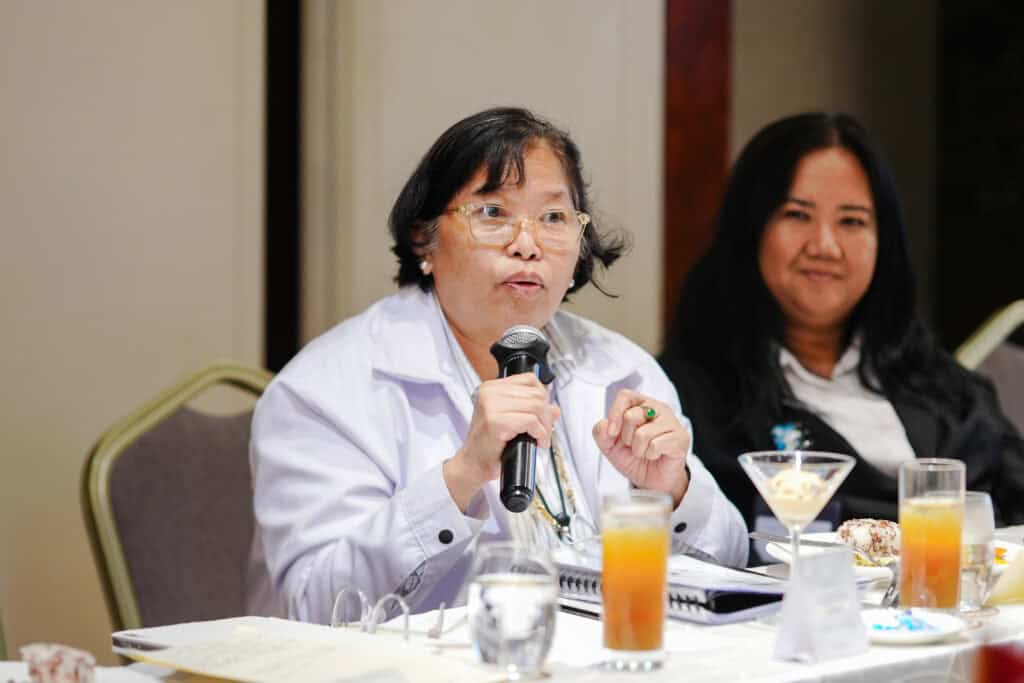
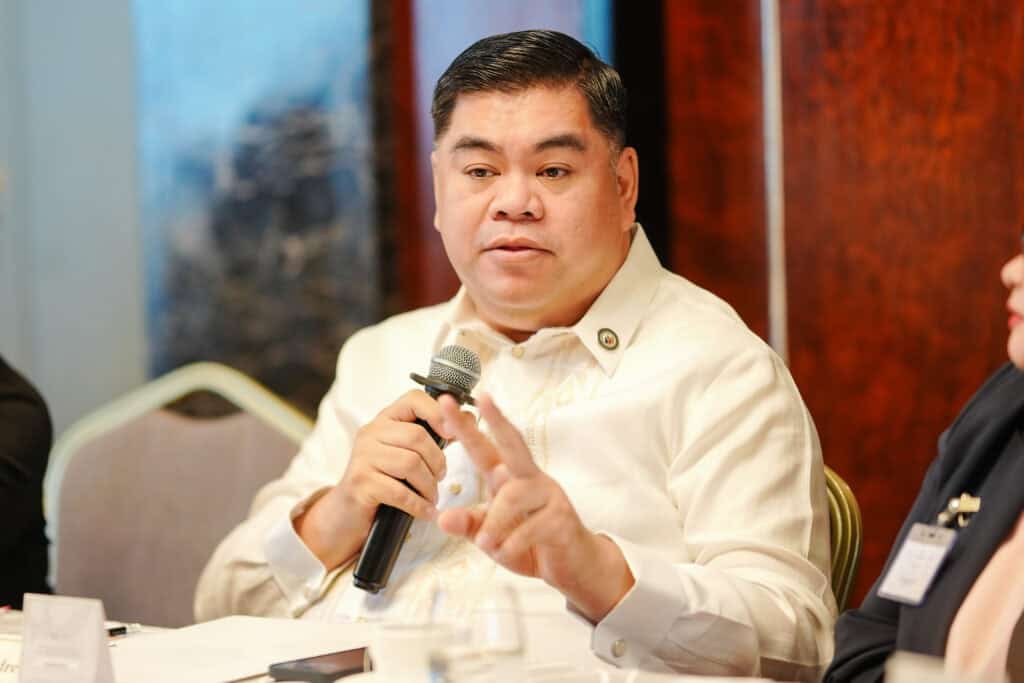
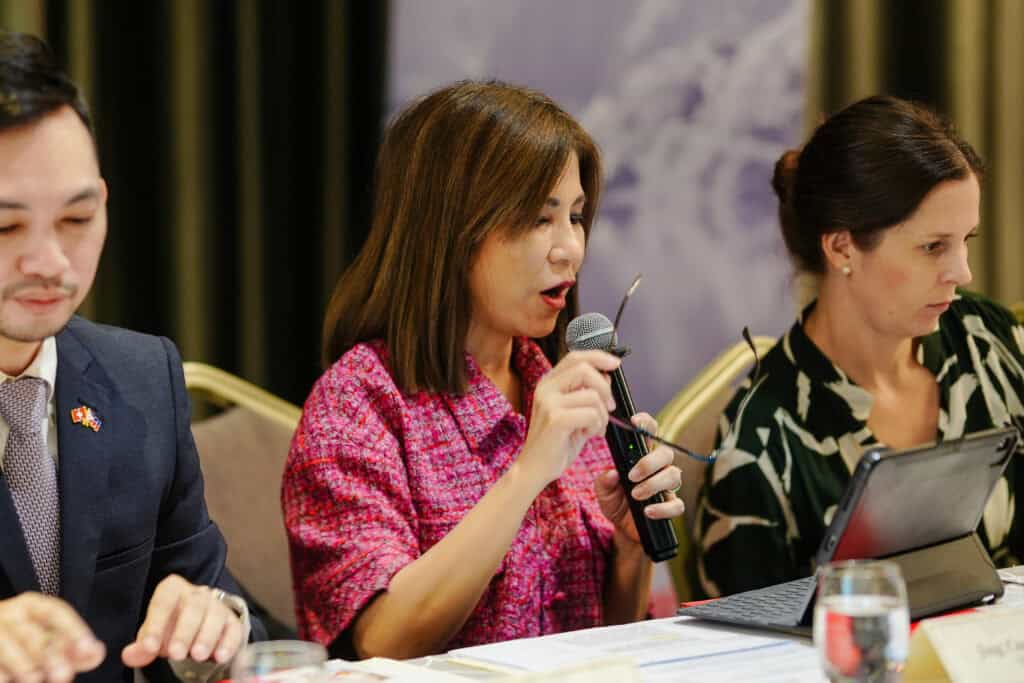
Jing Castañeda closed the event by expressing gratitude to all partner stakeholders for declaring their support to improve breast cancer survivorship in the country and to achieve the WHO’s Global Breast Cancer targets. Aligned with these efforts, the Swiss Chamber of Commerce of the Philippines reaffirmed its persistent mission to foster impactful collaborations that promote health equity and innovation, and its goal to support initiatives that advance accessible, high-quality healthcare for all.
